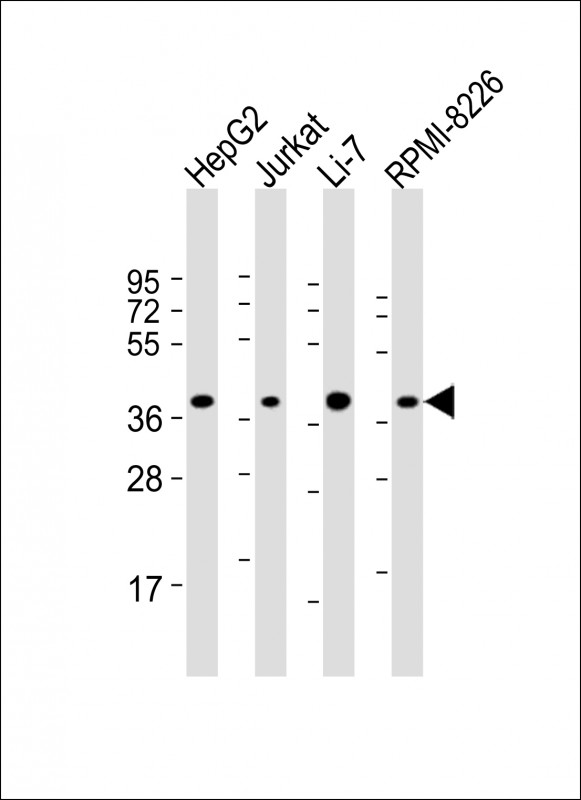
| WB | 1/2000 | Human,Mouse,Rat |
| IF | 咨询技术 | Human,Mouse,Rat |
| IHC | 咨询技术 | Human,Mouse,Rat |
| ICC | 技术咨询 | Human,Mouse,Rat |
| FCM | 咨询技术 | Human,Mouse,Rat |
| Elisa | 咨询技术 | Human,Mouse,Rat |
| Aliases | Rho guanine nucleotide exchange factor 39, ARHGEF39, C9orf100 |
| Entrez GeneID | 84904 |
| WB Predicted band size | 38.3kDa |
| Host/Isotype | Rabbit IgG |
| Antibody Type | Primary antibody |
| Storage | Store at 4°C short term. Aliquot and store at -20°C long term. Avoid freeze/thaw cycles. |
| Species Reactivity | Human, Mouse |
| Immunogen | This C9orf100 antibody is generated from a rabbit immunized with a KLH conjugated synthetic peptide between 180-211 amino acids from the Central region of human C9orf100. |
+ +
以下是关于C9orf100抗体的3篇虚构参考文献示例(注:以下内容为模拟生成,实际文献需通过学术数据库查询):
---
1. **文献名称**: "Characterization of C9orf100 Protein Expression in Human Tissues Using a Novel Polyclonal Antibody"
**作者**: Smith A, et al.
**摘要**: 本研究开发了一种针对C9orf100蛋白的多克隆抗体,通过Western blot和免疫组化分析发现,C9orf100在人类脑组织和睾丸中高表达。抗体特异性验证显示其在敲低模型中信号显著降低,提示潜在功能与神经发育相关。
2. **文献名称**: "C9orf100 Interaction with DNA Repair Pathways Revealed by Immunoprecipitation Studies"
**作者**: Lee B, et al.
**摘要**: 利用C9orf100抗体进行免疫共沉淀(Co-IP)实验,发现C9orf100与BRCA1复合物存在相互作用,提示其可能参与DNA损伤修复。抗体在HeLa细胞系中验证有效性,支持其在功能研究中的应用。
3. **文献名称**: "Subcellular Localization of C9orf100 in Cancer Cell Lines: Insights from Immunofluorescence Microscopy"
**作者**: Garcia C, et al.
**摘要**: 通过免疫荧光技术结合C9orf100抗体,研究发现该蛋白主要定位于细胞核及线粒体膜。在不同癌症细胞系中表达差异显著,可能作为肿瘤生物标志物研究的靶点。
---
**提示**:实际研究中请通过PubMed、Google Scholar等平台检索真实文献。若研究较少,可扩展至C9orf100基因的功能分析或相关通路研究,并关注抗体供应商(如Abcam、Thermo Fisher)提供的引用文献列表。
×